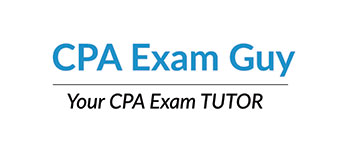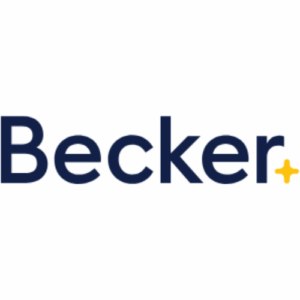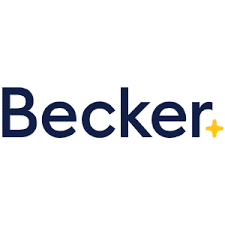Obtaining a CPA license can give your career a boost; In fact, there are a number of benefits to becoming a CPA. A professional accounting qualification could provide you with a higher salary and even put you on the fast track for a leadership position at your company.
How exactly do you get a CPA license?
Firstly, it’s important to remember that there are 55 different boards of accountancy that issue CPA licenses. Each of the 50 states has its own board. Additionally, the District of Columbia, Puerto Rico, Guam, the U.S. Virgin Islands, and the Commonwealth of the Northern Mariana Islands also issue licenses.
Each of these 55 jurisdictions has its own criteria for awarding a CPA license. These requirements fall under three categories:
- Education
- Experience
- License requirements
Let’s examine each of these in greater detail.
Remember: specific requirements for each state could differ. CPA licenses are not issued by any central authority or body. Your only option to get one is to approach one of the state accountancy boards.
See the Top CPA Review Courses
- Becker CPA Review Course ◄◄ #1 Rated CPA Prep Course of 2026
- Gleim CPA Review Course ◄◄ Most Practice Questions
- UWorld CPA Prep Course ◄◄ Best Video Lectures
- Surgent CPA Prep Course ◄◄ Best Adaptive Technology
- Lambers CPA Review Course ◄◄ Best Testing Software
CPA Exam Education Requirements
The educational requirements for a CPA license are:
- A college degree
- Passing the Uniform CPA examination
- Passing the Ethics exam
Most state accountancy boards require 150 semester credits towards an accounting degree from an accredited college or university. This is a prerequisite for getting your CPA license. The majority of states stipulate that you must also have a bachelor’s degree to be eligible to even sit for the CPA Uniform exam. However, some states do permit you to take one section of the exam before you complete college.College Degree
When you are fulfilling the college degree requirement, there are three key factors that you need to take into consideration:
Firstly, you require 150 semester credits. Most bachelor programs in accounting need you to complete only 120 hours. But to meet the CPA eligibility condition, you have to accumulate 150 semester hours.
Here’s how you can meet this condition:
- Work towards completing a combined undergraduate accounting degree along with a master’s degree. You could opt to study for both degrees at the same school, or you could even finish your undergraduate degree at one school and your master’s at another.
- After finishing your undergraduate accounting degree, take up an MBA program with a concentration in accounting.
- Find a school that offers an integrated five-year program that leads to a master’s degree in accounting.
You will need to check with your state board regarding the specific requirements; however, practically every state requires 150 semester credits. A regular accounting degree with 120 credits will not be sufficient for the majority of states.
There are two other factors that you must take into consideration in connection with the college degree requirement. Although the rules could vary in some states, most require an accounting degree; non-accounting majors are generally not acceptable. In addition to this, you must graduate from a college or university whose accreditation is accepted by the state board of accountancy.
Passing the Uniform CPA examination
This condition is required to be met in precisely the same manner in each of the 55 jurisdictions. It is the only requirement that remains unchanged regardless of the state: that’s why it is called the “uniform” CPA exam.
This exam consists of four sections, each of which involves a four-hour test. The subjects are:
- Auditing and Attestation (AUD)
- Business Environment and Concepts (BEC)
- Financial Accounting and Reporting (FAR)
- Regulation (REG)
Candidates must pass these four sections over a period of 18 months. You must also score a minimum of 75 in each of the sections.
There are four “testing windows” each year. You are free to take the exam during any of these. In addition to this, you can take the sections in any order that you like.
The CPA testing windows are:
- Q1 – January 1 – March 10
- Q2 – April 1 – June 10
- Q3 – July 1 – September 10
- Q4 – October 1 – December 10
How difficult is the exam? Approximately, half the candidates who appear obtain a passing grade. Here are the pass rates for the first two quarters of 2020:
2026 CPA Exam Pass Rates
| Section | Q1 | Q2 |
| Auditing and Attestation (AUD) | 49.27% | 54.70% |
| Business Environment and Concepts (BEC) | 56.43% | 60.31% |
| Financial Accounting and Reporting (FAR) | 41.59% | 49.17% |
| Regulation (REG) | 49.99% | 55.75% |
Source – American Institute of CPAs
Each section of the CPA exam includes a number of multiple-choice questions (MCQs) and task-based simulations (TBSs). The Business Environment and Concepts (BEC) section contains written communication questions in addition to the MCQs and TBSs. The other three sections contain only MCQs and TBSs.
Passing the CPA Ethics Exam
The ethics exam is the third and last part of the educational requirement for obtaining your CPA license. It’s a simple exam that tests your response to the ethical issues that you could face when you start work as a licensed CPA.
The ethics exam follows a multiple-choice question format. There are 40 questions and you need to get at least 36 correct to pass.
The ethics exam can be taken online or on paper. Unlike the uniform CPA exam, which needs to be taken at a Prometric testing center, the ethics exam can be taken from home. If you take it online, you will get your result immediately. However, if you submit a paper answer sheet by mail, it could take several weeks to get your results.
Remember that the ethics exam is a requirement of the state accountancy board; Some states do not require you to take the AICPA-administered exam since they have their own version, and some states do not require it at all.
Here’s a quick tip: before you plan to take this exam, check your state’s CPA requirements!
CPA Experience Requirements
To obtain your CPA license, it is essential to gain the necessary work experience. Each state accountancy board stipulates the nature of work that you must do and the number of years of experience that you must have before you are eligible for your license.
In most instances, you have to work under the supervision of an actively licensed CPA who will certify the work that you have done. Remember to check whether your verifier is licensed; a retired CPA or a person with an inactive CPA license is not qualified to verify your work.
The rules regarding experience requirements can be quite confusing. Here is how state accountancy board regulations could vary:
- You may not have to work in public accounting to obtain your license, although some states insist on this. For the most part, you could fulfill your experience requirement by working in non-public accounting or taxation. Some states even permit the time that you spend in teaching or in doing academic work to count towards your experience requirement.
- Check whether you have to work full-time. You could be allowed to work part-time or even be permitted to consider self-employment towards the experience requirement.
- In most states, you need to work under the supervision of a CPA verifier. But this is not true for every state since some allow a non-CPA supervisor. There are also some states that permit a CPA to verify your work even if this person is not your supervisor.
- In most cases, one year of experience is sufficient. However, some states require two years if the work involves non-public accounting.
Again, it’s advisable to check the experience requirement of your state as early as you can. This way, you won’t get any unpleasant surprises at the last moment!
CPA License Requirements
In addition to the education and experience requirements that are stipulated by your state board, you have to meet certain other conditions as well. Each state has its own rules regarding several other criteria.
Keep reading to learn more about these additional licensing requirements:
Citizenship Requirement
Most states do not require you to be a U.S. citizen as a precondition for issuing a CPA license; however, several state boards do not grant licenses to non-U.S. citizens. This list includes Alabama, Hawaii, Louisiana, North Carolina, and South Carolina.
Residency Requirement
Again, you usually don’t need to be a resident of a particular state to obtain a CPA license from there, but Idaho, Kansas, Louisiana, Mississippi, Missouri, Nebraska, Nevada, Ohio, Oklahoma, Pennsylvania, Puerto Rico, Rhode Island, the U.S. Virgin Islands, West Virginia, and Wyoming have this requirement.
Social Security Requirement
Most state boards require candidates to have a social security number. You can see a list of those that don’t on the State & Territory Requirements page of the AICPA website.
International CPA Candidate Friendly
Several states allow international candidates to apply for a CPA license while many don’t. You can see the state-wise list on this AICPA owned website.
CPA license holders are also required to update their knowledge and skills by participating in continuing professional education (CPE) courses. Most states require you to take ethics courses as well.
The rules laid down by each state towards CPE can be complicated and will change periodically. You can view your state’s requirements on the National Association of State Boards of Accountancy (NASBA) website.
The AICPA also offers courses that can help you to meet your continuing professional education requirements. These courses are available in a wide range of subjects that include accounting and assurance services, tax, fraud prevention and detection, and ethics.
Get The Best Discounts On Your CPA Review Course!

Take $1,600 Off UWorld CPA Elite-Unlimited Course
Conclusion
Passing the Uniform CPA Examination is an essential requirement for getting your CPA license. This exam is exactly the same regardless of where you take it but is only one of the three conditions that you must meet to get your license. The other two — work experience and license requirements — are handled by your state accountancy board. It is this body that will issue you your CPA license.
Remember: although it isn’t easy to get your license, the rewards can be great!
You will become one of the approximately 650,000 individuals who hold an active CPA license. According to the United States Department of Labor, “Accountants and auditors who have earned a professional recognition, especially as Certified Public Accountants, should have the best job prospects.”





